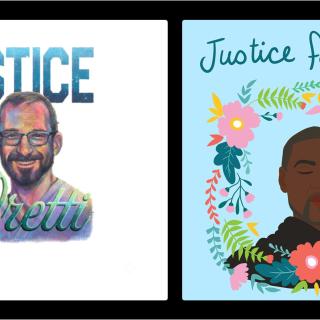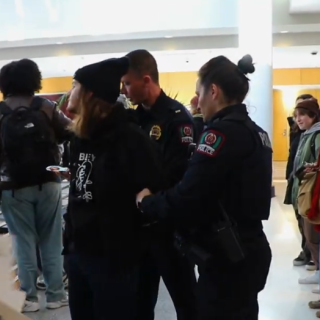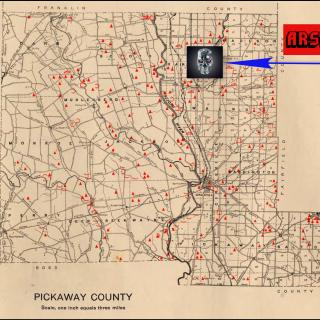Afghan refugee Donya (Anaita Wali Zada) lives in Fremont but works at a fortune cookie factory in San Francisco. Seeking connection, she decides to send a message out to the world through a cookie in this offbeat vision of the universal longing for home.
Each morning Donya eaves her tight-knit community of Afghan immigrants in Fremont, California. She crosses the Bay to work at a family-run fortune cookie factory in San Francisco. Donya drifts through her routine, struggling to connect with the culture and people of her new, unfamiliar surroundings while processing complicated feelings about her past as a translator for the U.S. government in Afghanistan. Unable to sleep, she finagles her way into a regular slot with Dr. Anthony (Gregg Turkington), a therapist, who grasps for prospective role models. When an unexpected promotion at work thrusts Donya into the position to write her own story, she communicates her loneliness and longing through a concise medium, the fortunes inside each cookie. Donya’s koans travel, making a humble social impact and expanding her world far beyond Fremont and her turbulent past, including an encounter with Daniel (Jeremy Allen White), a quiet auto mechanic, who could stand to see his own world expanded. Tenderly sculpted and lyrically shot in black-and-white, "Fremont" is a wry, deadpan vision of the universal longing for home.
"Radio Dreams" was about Iranians and Afghans living in the Bay Area. And "Land" was something entirely different, it took place in a fictional Indian reservation. With "Fremont" there are no specifically Iranian elements, but it's primarily about an Afghan girl who finds herself living in the Bay Area. As an immigrant or refugee coming into a new culture there a lot of times you want to be a human being foremost in order to be able to not just exist, but to have a sense of normalcy. And that's what aimed for with the character of Donya. She's a young girl, she has a traumatic past she needs to deal with, but she also has aspirational dreams. And those dreams are not about, you know, 'winning' or getting a job that pays $10 million, and calling home saying, 'Hey, ma, you know, America did sort me out. Look at me now'. It's not like that. No. Her aspirations are on a very normal, basic level. A lot of it is done in static shots.
For example, in the scenes with Donya and Dr. Anthony the film keeps the visual style pretty uniform in switching back and forth between them. Also, in the factory, the film shows the workplace, people at work, with static shots. We switched to handheld in the karaoke scene, which is a bit more dreamy, with softer movements while Donya is walking. Living thousands of miles from family and home, suddenly in a new country, starting from nothing, trying to make friends, trying to navigate through the complex immigration process to become a fully recognized U.S. citizen, none of its easy. One thing about Donya’s personality is that she is strong. She doesn't want to share her loneliness with others, like even with her psychiatrist, Dr. Anthony. Sometimes she wants the company of other people, and sometimes she wishes she could get away. All of us are trying to find ways to do something for ourselves, and then for our people.
"Fremont" takes its title from its central setting, Fremont, California, a vibrant and diverse community in the East Bay and the most populous city in Alameda County. Fremont is situated on the historic lands of the Ohlone tribe, who were gradually displaced by Spanish missionaries beginning in the late 18th century.
The area, along with the rest of modern-day California, was annexed into the United States following the conclusion of the Mexican-American War in 1848. The city itself was not incorporated until 1956, when five towns (Irvington, Centerville, Mission San Jose, Niles, and Warm Springs) joined together to form Fremont.
The new city was named after John C. Frémont, the colorful and controversial figure who served variously as US army commander, California's military governor, and one of the state's first US senators. Frémont ran unsuccessfully as the Republican Party's first presidential nominee in 1856, with an anti-slavery platform and the memorable campaign slogan, 'Free Soil, Free Men, Frémont'. The city of Fremont itself has long been at the crossroads of economic opportunity and demographic change. Its proximity to Silicon Valley has brought high-tech manufacturing to working-class Fremont, the first Mac computer was built at an Apple plant in Fremont in the 1980s, and Tesla operates a major manufacturing hub there today.
Yet Fremont has also been treated as a bedroom suburb for the greater Bay Area-a calmer, quieter, cheaper alternative to the hustle and bustle of San Francisco. Until 2017, Fremont was the southern terminus for BART (Bay Area Rapid Transit), the commuter train that brings Donya into San Francisco for her job at the fortune cookie factory. Fremont today is roughly half Asian, with many different communities represented, including sizable Indian, Chinese, Filipino, and Vietnamese populations.
Notably, Fremont can also claim, by general consensus, the largest Afghan population in the United States, with a short stretch of Fremont Blvd. dubbed Little Kabul. The Afghan diaspora of Fremont did not settle all at once; successive waves of migration have reinforced each other, with Afghans refugees displaced by the Soviet invasion of 1979, the Taliban regime in the late 1990s, and, most recently, the withdrawal of US forces in 2021. While Fremont is a work of fiction, Donya's story reflects the social texture of a real immigrant community perched between the pressure to assimilate and the will to survive.
The film is about an immigrant in a new country but, of course, there's no uniform immigrant experience. Each individual has different reasons for leaving and each individual has their own dreams and desires for what the future will hold in their new home. Often, one’s past dictates their present and for someone starting from scratch somewhere far from home, the past is never really behind them.
This film wants to look beyond the idea that there are wild differences between humans. In a world where so much is made of imagining differences and exaggerating otherness, it’s important to look at universal similarities. An immigrant and a non-immigrant share many of the same hopes, dreams and ambitions. The main character in this film, Donya, a feisty young woman and a former translator for the U.S. military, feels she's where she's due to her own life choices. But this does not mean she does not suffer or feel displaced. She is determined to change things. She wants to be busy. She wants to be at ease. She wants to fall in love. And she wants acceptance. Like most other people. Even though this film looks at the plight of an Afghan translator and her new life in America, the style of the film is not one that's rooted in social realism.
Observations of the absurdities of cultural adjustment and feelings of displacement can also be presented through the lens of humor. For although the subjects that are dealt with here can be dark at times, there's humor in darkness too. Showing humor in situations that are bleak doesn’t underplay the seriousness or depth of a story but rather, it can add layers to the sense of realism. As the saying goes, 'He who cries only has one pain'. But he who laughs has a thousand and one pains. There's a huge Afghan refugee population in Iran. At a certain point, Iran is home to the biggest refugee population in the world, and the majority of them are Afghans.
It's always about the men and the struggles they go through, which is of course very real. But the story also mentioned the town of Fremont, which is currently home to the largest Afghan community in the United States. And some of the women openly said that for them the process of working as translators had been even more difficult because some people in Afghanistan consider them to be traitors, but also because as women they run against the more traditional elements of that society by working at all.
We think trauma changes you, and we think grief changes you; we think happiness, success, all these things change you in some way. But we don't think they alter your personality. We see little shifts of course, but little shifts eventually get you somewhere, wherever that may be. Don’t forget Afghanistan! People there are still suffering, they're cold, hungry and without hope. It’s an emergency. Of course, there are problems worldwide, but please keep your thoughts on Afghanistan, where women's rights have disappeared. Talk about Afghanistan with your friends. Follow the.news. And support Afghans who have recently arrived in your town or city. The story is far from over.









